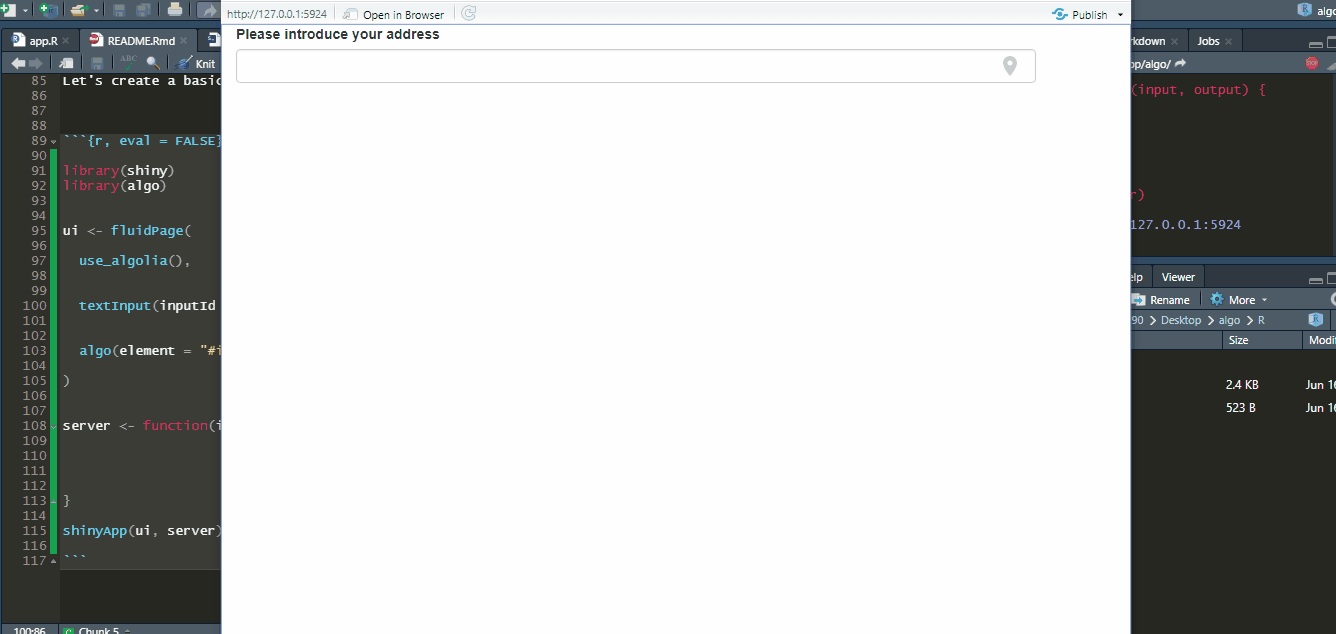
The algo package allows you to implement the Algolia Places Address
Search Auto Completion Menu on shiny Text Inputs.
In order to use the Algolia Places JavaScript library, you’ll need create a free Places application in which you can get an ID and an API KEY. When you sign up, you’ll be able to run 100,000 requests/month which is quite cool for most users.
After that, set your credentials within the .Renviron file which can be opened with:
# install.packages("usethis")
usethis::edit_r_environ()Then, store the value of your credentials as follows:
# These credentials are fakes and used to give you an idea
ALGOLIA_ID= LSKDFNSFSD
ALGOLIA_KEY= 29453SKVNEV43T3G3KVEEVFinally, save your .Renviron file, close it and restart your R session.
You can install the development version of algo from
Github with:
# install.packages("remotes")
remotes::install_github("feddelegrand7/algo")The algo package has two functions:
use_algolia(): you must put the
use_algolia() function at the beginning of your shiny UI.
It doesn’t take any argument. It only allows you to activate the Algolia
Places JavaScript library.
algo(): you’ll implement an address search auto
completion menu on any shiny text input using this function.
Let’s create a basic shiny application to demonstrate the features of the package:
library(shiny)
library(algo)
ui <- fluidPage(
use_algolia(),
textInput(inputId = "inp1", label = "Please introduce your address", width = "800px"),
algo(element = "#inp1", type = "address") # Don't forget to add the # to your ID
)
server <- function(input, output) {}
shinyApp(ui, server)
Using the type argument you can specify which type of
geographic information to collect:
library(shiny)
library(algo)
ui <- fluidPage(
use_algolia(),
textInput(inputId = "inp1", label = "Please introduce your country", width = "800px"),
textInput(inputId = "inp2", label = "Now introduce your city", width = "800px"),
algo(element = "#inp1", type = "country"), # Don't forget to add the # to your ID
algo(element = "#inp2", type = "city")
)
server <- function(input, output) {}
shinyApp(ui, server)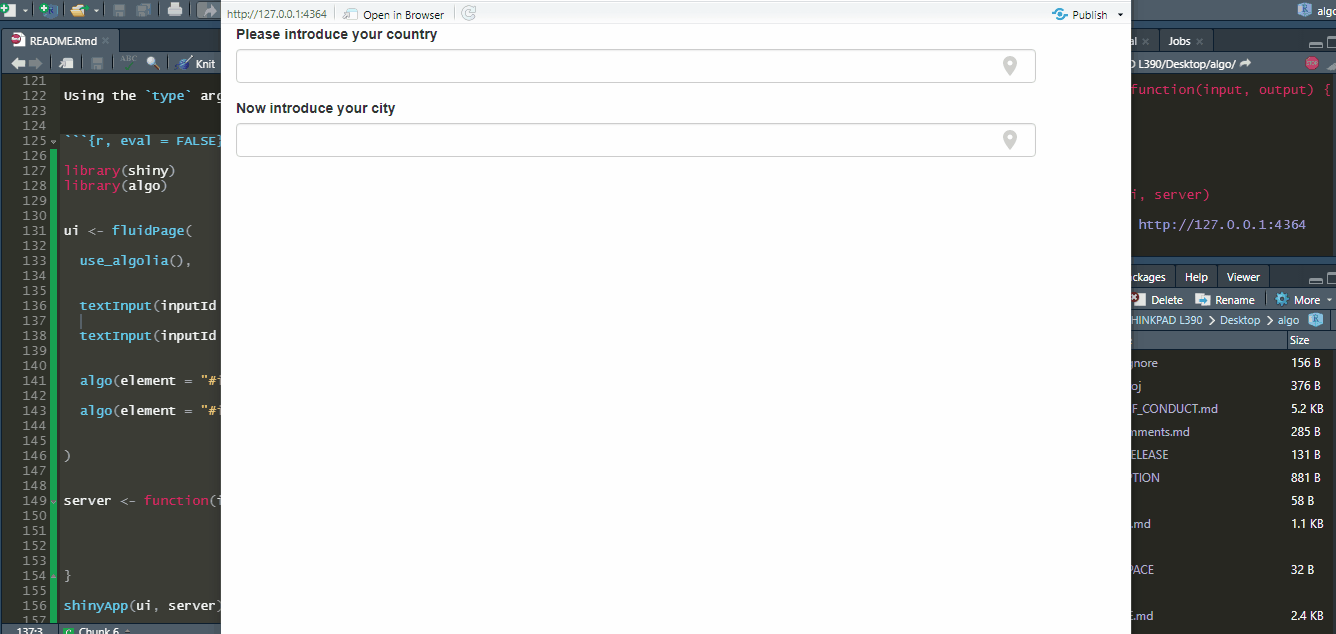
You can also specify in which country (or countries) you want to get the addresses. This will set a delimitation according to the chosen country:
library(shiny)
library(algo)
ui <- fluidPage(
use_algolia(),
textInput(inputId = "inp1", label = "Where do you live in Japon ?", width = "800px"),
algo(element = "#inp1", type = "address", countries = "jp") # Don't forget to add the # to your ID
)
server <- function(input, output) {}
shinyApp(ui, server)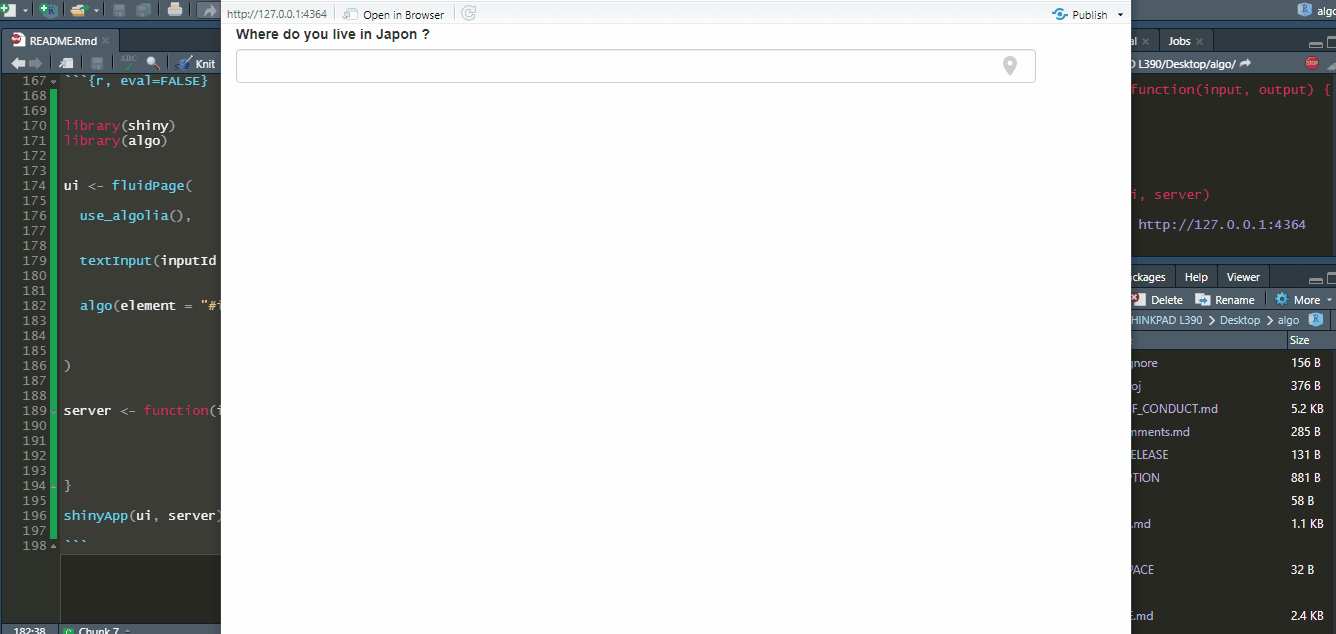
Further, you can specify which language should be displayed when collecting the addresses (note that it will only translate partially the addresses):
library(shiny)
library(algo)
ui <- fluidPage(
use_algolia(),
textInput(inputId = "inp1", label = "Where do you live in Spain ?", width = "800px"),
algo(element = "#inp1", type = "city", countries = "es", language = "de") # Don't forget to add the # to your ID
)
server <- function(input, output) {}
shinyApp(ui, server)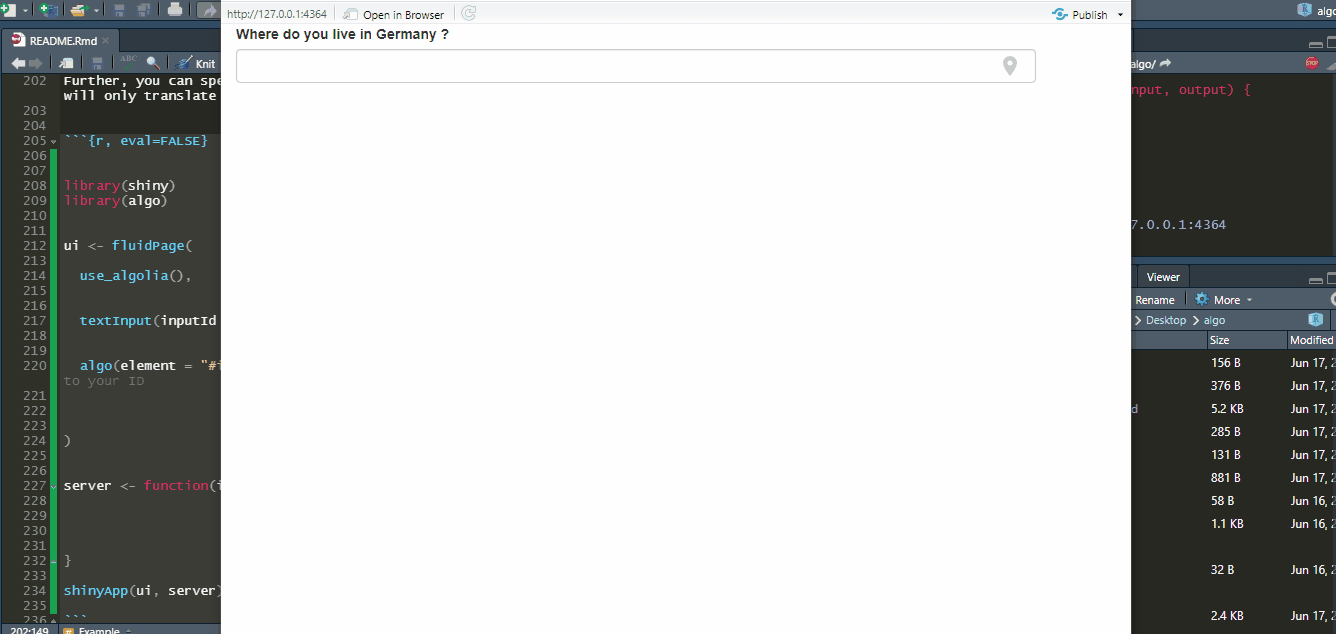
Finally, you can collect the addresses the same way as any other shiny inputs:
library(shiny)
library(algo)
ui <- fluidPage(
use_algolia(),
textInput(inputId = "inp1", label = "Where do you live in Spain ?", width = "800px"),
algo(element = "#inp1", type = "city", countries = "es", language = "de"), # Don't forget to add the # to your ID
textOutput(outputId = "txt1")
)
server <- function(input, output) {
output$txt1 <- renderText({
req(input$inp1)
paste0("I KNOW WHERE YOU LIVE O_O: ", input$inp1)
})
}
shinyApp(ui, server)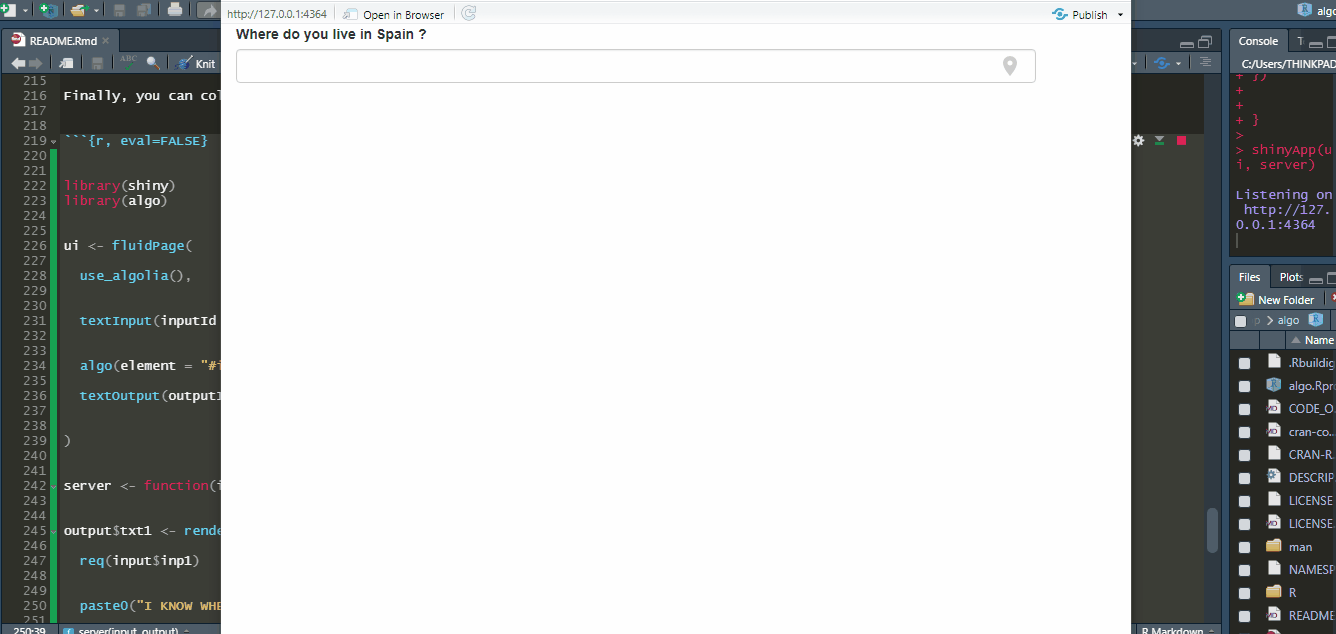
Please note that the algo project is released with a Contributor Code of Conduct. By contributing to this project, you agree to abide by its terms.